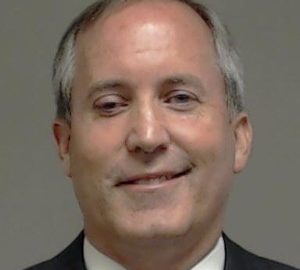The state’s Republican leadership is once again crossways with some prominent Texas business organizations and companies — this time over the fate of thousands of immigrants brought to the United States illegally as children.
A pro-business coalition has weighed in to oppose a federal lawsuit filed by Texas Attorney General Ken Paxton. The suit seeks to end the Deferred Action for Childhood Arrivals program, an initiative during President Barack Obama’s administration known as DACA that has provided young immigrants with work permits and protection from deportation.
Ending the program will cause “irreparable harm to the Texas economy” and reduce economic activity in the state by more than $6 billion annually, the business coalition said in a legal brief filed in federal court in Houston over the weekend. The brief estimates the number of DACA recipients living in Texas — who are known as Dreamers — at more than 126,000.
The coalition includes 10 business organizations across the state, including the Texas Association of Business and the Greater Austin Hispanic Chamber of Commerce. Four companies — Southwest Airlines, United Airlines, Marek Brothers Construction and International Bancshares Corp. — also have signed on.
The group is reminiscent of one that formed last year during the high-profile fight over the so-called “bathroom bill,” when the Texas Association of Business helped organize opposition to a push by socially conservative GOP lawmakers, including Gov. Greg Abbott and Lt. Gov. Dan Patrick, to regulate where transgender people can use the bathroom. The effort to regulate transgender bathroom usage ultimately failed.
Jeff Moseley, chief executive of the Texas Association of Business, said Monday that the similarity of the battle lines is coincidental and not indicative of a widening rift with the state’s Republican leadership.
“From time to time, we may be looking at policy from different angles,” Moseley said. But he noted that his organization is on the same side as Paxton in opposition to a pending city of Austin ordinance requiring that private employers provide sick leave to workers.
Paxton declined to comment Monday on the business coalition’s opposition to his DACA lawsuit, which was joined by six other states when it was filed in May. A spokesman for Abbott, who as Texas attorney general in 2014 filed a multi-state suit to prevent a DACA expansion, didn’t respond to a request for comment.
Members of the Texas business coalition opposed to Paxton’s effort to end DACA contend it makes no sense to deport young people who have become productive U.S. citizens after being raised here and educated in public schools funded by U.S. taxpayers.
The group’s legal brief cites a number of examples, including 27-year-old Austin real estate agent Diego Corzo, a native of Peru who was brought to the United States by his parents when he was 9.
Corzo, a graduate of Florida State University, told the American-Statesman that he and his business partner sold more than 65 homes last year, and he noted that he paid about $33,000 in federal income taxes.
“There is so much uncertainty now, it makes it hard for me to continue to grow my business or expand it because I really don’t know what is going to happen,” he said Monday.
“I am employing Americans and I am paying taxes,” Corzo said. “I don’t think it would be a smart decision for the United States to take (DACA recipients) out now when we are able to give back and pay taxes to the country that has given us so much.”
The business groups agreed, saying among other things that such a move would cost the state’s employers access to skilled workers.
“Dreamers are … valued employees for businesses throughout Texas,” their legal brief said. “They are employed across industries, including filling critical needs in the health and education fields and providing much-needed bilingual skills to the Texas community.”
Southwest Airlines, based in Dallas, said in a prepared statement Monday that it counts DACA recipients among its “valued customers, employees and fellow members of the Texas business community.”
United Airlines echoed that sentiment, urging “the state of Texas to reconsider its position and support DACA” in a prepared statement. United is based in Chicago but is a large employer in the Houston area.
Then-President Obama announced the DACA program in 2012 through an executive order, saying he wanted to protect people who were “Americans in their heart, in their minds, in every single way but one: on paper.”
But Paxton and other opponents insist that Obama exceeded his authority, usurping lawmaking power that the Constitution designated for Congress. The lawsuit seeks a federal court order declaring DACA unconstitutional and stopping the federal government from issuing or renewing DACA permits.
It doesn’t seek to remove deportation protections from current DACA recipients or to rescind already issued permits, Paxton has said.
Regardless, Moseley said the notion of ending DACA is misguided and will hurt the state’s businesses.
“The reality is we have spent taxpayer dollars training these children who came into our economy,” Moseley said. “These are trained workers now who are stepping up and contributing. They are a very wonderful asset that we have.”
Article by Bob Sechler • View on Austin American-Statesman



